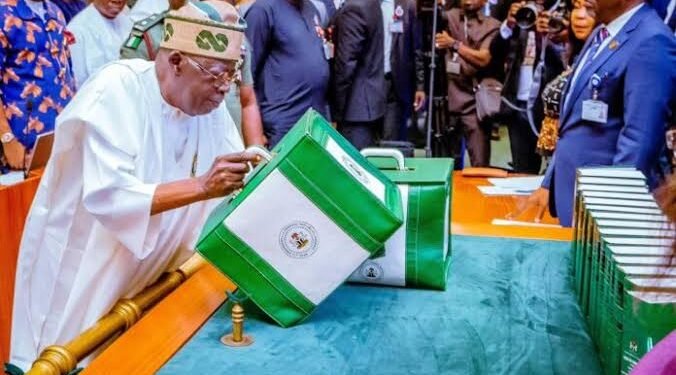The African Centre for Human Rights (ACHR) has described the 2025 budget presented to the National Assembly by President Bola Ahmed Tinubu as the largest in the history of Nigeria, which it said reflects a strategic and forward-thinking approach.
Titled “Budget of Restoration: Securing Peace, Rebuilding Prosperity,” the N47.96 trillion budget is being hailed as a bold and comprehensive blueprint to address Nigeria’s most pressing challenges, which is believed to set the nation on a path to sustainable growth.
ACHR Executive Director, Dr Richard Ikani, said in a statement that President Tinubu’s 2025 budget, which is the largest in Nigeria’s history, reflects a strategic and forward-thinking approach to the country’s economic recovery.
He further said, “One of the central themes of the budget is to restore macroeconomic stability, a crucial step given Nigeria’s current challenges of high inflation and exchange rate volatility. With inflation currently exceeding 34 per cent, the government has taken the bold step to set a target to reduce inflation to 15 per cent by the end of 2025—a goal that many economists believe could help stabilise prices and increase the purchasing power of ordinary Nigerians.”
Ikani pointed out: “The President’s emphasis on stabilising the exchange rate is another key feature of the budget. Projections indicate that the naira will strengthen to N1,500 to $1, a significant improvement from the current exchange rate, which hovers around N1,700 to $1. This move, experts say, will help stabilise Nigeria’s financial system, promote investor confidence, and facilitate trade.
“Another notable aspect of the 2025 budget is the ambitious revenue target of N34.82 trillion, reflecting a determined effort by Mr. President to increase government revenue. Nigeria has long struggled with a low revenue-to-GDP ratio over time, and this budget seeks to reverse that trend for the best. The administration’s plan to increase oil production to 2.06 million barrels per day and broaden the tax base through improved tax collection is seen as a necessary step in achieving these goals. While the revenue target is challenging, President Tinubu has made it clear that these efforts are essential to reducing Nigeria’s dependence on external debt and ensuring the sustainability of public services.”











